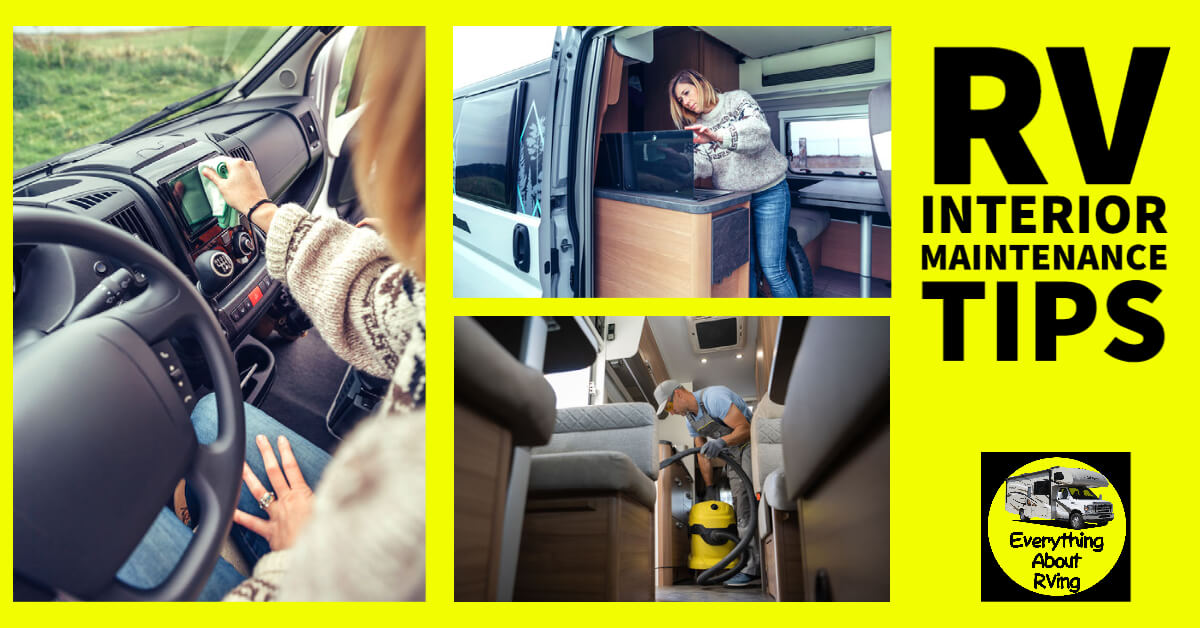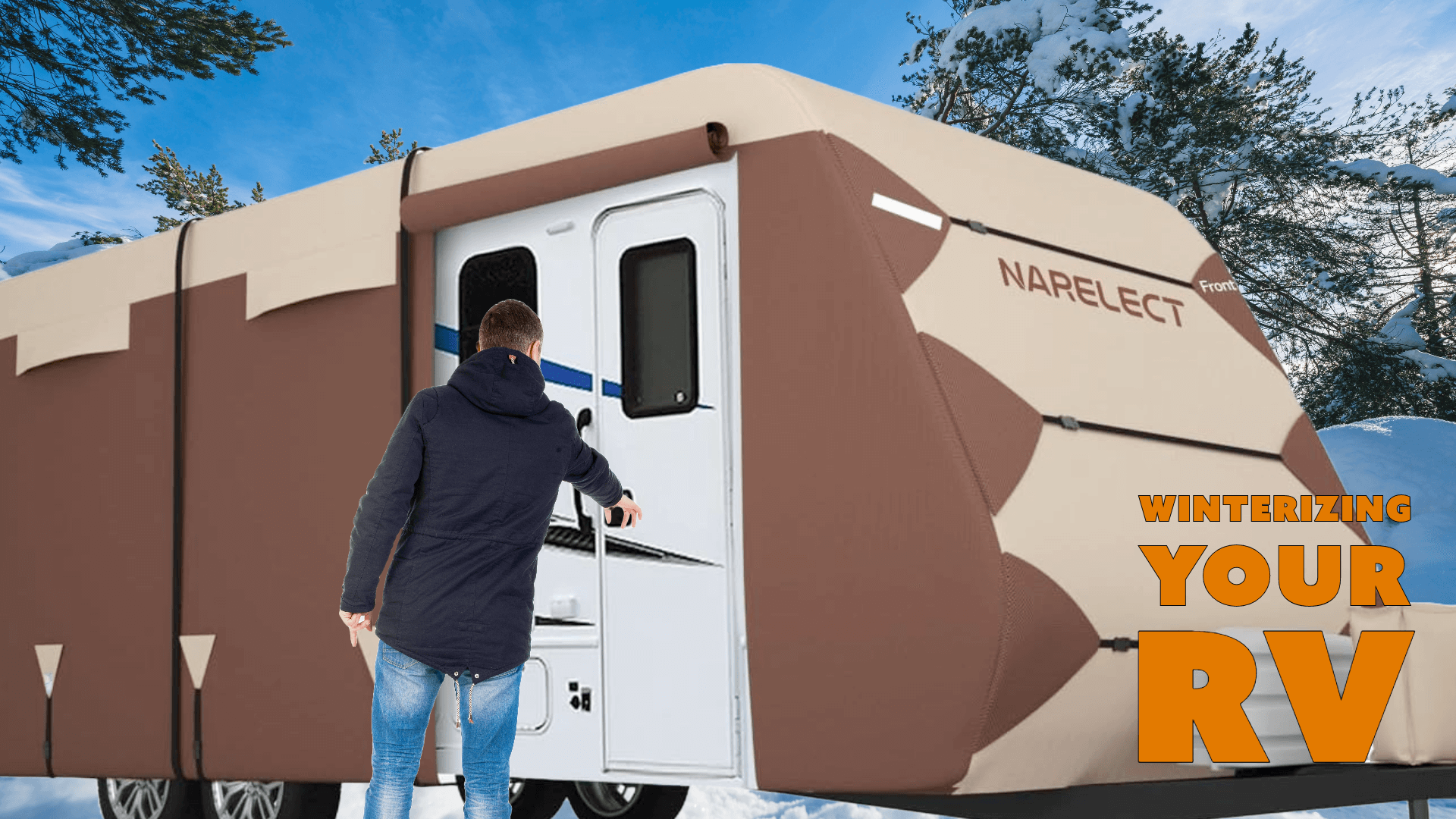- Home Page
- RVing Tips & Tricks
- Rv Interior Maintenance
RV Interior Maintenance Tips
RV interior maintenance is important especially when the weather gets hotter
As the months start to get hotter, RV interior maintenance of your RV becomes more important. Several components experience wear and tear regularly, and some, over time, need to be replaced or monitored to avoid future damage. Here are a few tips for maintaining the interior of your RV, whether it's brand new or one with a little more character.
Older RVs
If you're planning on renovating or upgrading an RV with a little more age, it's important to look out for some hazards before starting this process. Flooring is commonly replaced, as it has the most damage from daily use
Some of the flooring in these vintage RVs (1987 or earlier) can contain asbestos. Asbestos typically isn't a danger unless it becomes airborne, which can get into your lungs and affect your health. A common risk with these airborne asbestos particles is a diagnosis of malignant mesothelioma cancer, which occurs from asbestos exposure. Unfortunately, mesothelioma has a long latency period and may not be diagnosed until 10-50 years after initial exposure. This is why it's ultra-important to avoid asbestos exposure during RV projects.
If you suspect that your RV could contain asbestos or if you want to be cautious, consider using an at-home Asbestos Test Kit (pictured Above) to test the elements or hire an abatement professional. Use a respirator to avoid any potential airborne hazards, and if you feel like you need it, bring in an expert. This will help keep you safe.
You'll have to be aware of these potential problems at the start of your RV renovation process.
New and Slightly Used RVs
Even if you plan to buy a new RV instead of updating your existing one, maintenance is just as important to make sure your RV or Tow Vehicle runs smoothly during use. Before every trip, it's best to check the tire pressure and the lug nuts to make sure everything is in place.
Like on a car, loose lug nuts can cause wheels to come loose, and overinflated or underinflated tires can cause severe damage to the tires, causing a blowout. So, inspect them before each trip.
If your RV has slide outs, you'll want to make sure these are maintained. Lubrication is key to making sure they operate properly. Sprays and dry lubes are available to help you maintain your RV's slides.
Your new or used RV may have appliances that need to be cleaned and maintained. Ensure to check the appliance and RV accessories manufacturer's guides for taking care of these.
Newer RVs tend to use more residential appliances. This means the cleaning process could be the same as it is when you are at home. Consider buying cleaning wipes, and use them to clean the fridge, stove, etc. A multi-purpose cleaner might also be the way to avoid bringing specific cleaners for your appliances.
Yearly Maintenance
Water damage will happen over time and is a normal part of maintenance to look for as your RV ages. Leaks will occur naturally if your RV is used pretty frequently, but it's important to nip them in the bud to avoid future damage to the structure of your vehicle.
Mold from
water damage can also cause health issues, like
respiratory illnesses and rashes. Again,
consider looking at the interior paneling if water damage is noticeable. If it's not, make sure to check the seams and
rivets of the RV frequently to avoid any surprises mid-trip.
As for daily usage maintenance, there are a few things to consider to keep your RV in tip-top shape while still making sure you're clearing the grime that comes with campgrounds, traveling, and other activities. While at home, you might use a more abrasive pad or cloth for cleaning; these can create abrasions that will catch dirt and particles that can build up and cause future problems.
Consider mild cleaners and non-abrasive cloths like microfiber on countertops, your sink, shower, toilet, etc., to avoid future problems. An excellent way to avoid these issues in the kitchen is to have cutting boards, a squeegee for the bathroom (to avoid mildew), placements and trays for eating, and racks for hot pans and pots. This may seem pretty obvious, but the small things can go a long way.
A handheld vacuum cleaner can help clear any messes that may take place, even if you have a tiled floor in your RV. This will be great for quick cleaning, especially since brooms and dustpans never quite get all the dust. A vacuum will be great for post-trips. Cleaning the hard-to-reach spaces in carpet fibers is a must to keep your carpeted areas clean and safe from any particles that could affect you and your family ln the future.
Whether you are traveling with a vintage RV or a brand new one, it's important to keep all renovation, cleaning, and upgrade maintenance in mind. These tips will help you avoid potential issues during a remodel or your monthly trip to the mountains. After all, no one wants a squeaky RV or one that causes health issues down the line. Take the time to maintain your RV's interior so that you can enjoy the great outdoors when the time comes.



